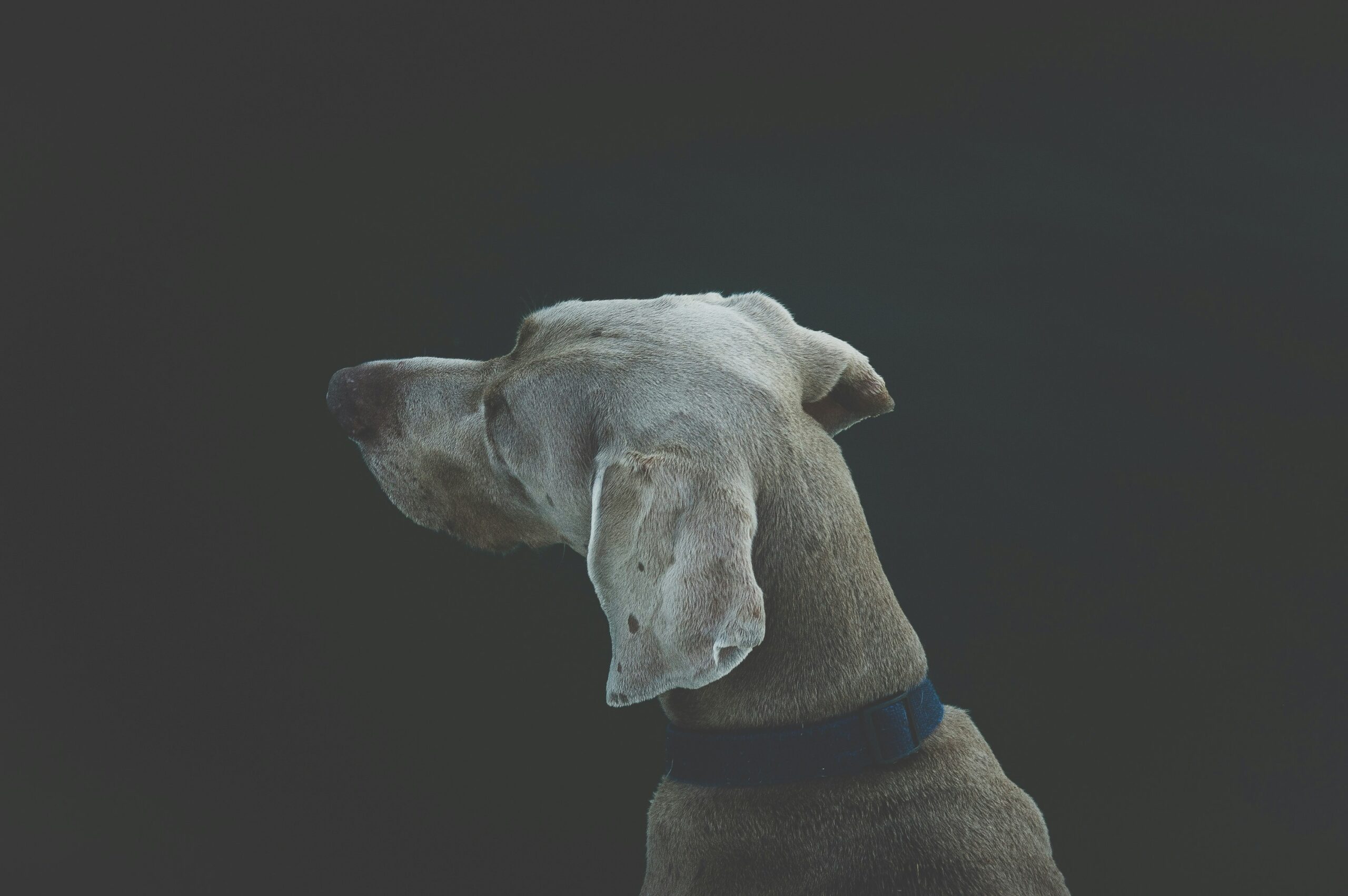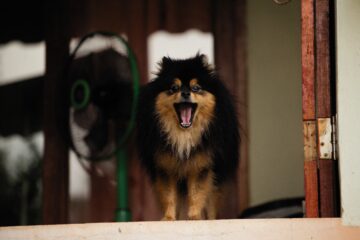Ever caught your dog doing a head-shaking dance and wondered, Why does my dog keep shaking his head?
You’re not alone in this canine conundrum!
In this detailed guide, we’re diving into 12 possible reasons behind your dog’s head-shaking antics.
We all know that dogs have their own way of communicating, and head shaking is one of those quirky behaviors that can mean different things.
Sometimes, it’s just a natural thing – like when they’re trying to shake off water or debris from their ears.
But other times, it might be a signal that something needs attention, like an ear infection, allergies, or even some random object stuck in there.
Don’t worry; we’ve got you covered with insights into these 12 reasons.
Whether it’s a quick fix or a more complex issue, understanding what might be going on will help you keep your furry friend feeling their best.
So, let’s unravel the mystery of head shaking together.
Table of Contents
12 Reasons Why Your Dog Keeps Shaking His Head

1] Ear Infections: The Itchy Culprit
Headshaking in dogs often arises from discomfort caused by ear infections.
Persistent itching and irritation in the ears lead dogs to vigorously shake their heads in an attempt to alleviate these sensations.
Regular at-home ear checks, combined with prompt veterinary attention if signs of infection arise, are crucial in maintaining your pup’s ear health.
This proactive approach can prevent the development of severe ear-related issues and keep your furry friend itch-free.
2] Waterlogged Ears: Post-Bath Shakes
A common and natural reason for headshaking is post-bath or post-swim waterlogged ears.
Dogs instinctively shake their heads to expel excess water from their ear canals, preventing moisture-related problems.
Understanding this behavior as a routine part of your dog’s post-hydration rituals can help you appreciate their innate cleanliness habits.
• Headshaking post-bath or swim is a common and natural behavior • Dogs shake heads to expel excess water from ear canals • Prevents moisture-related problems and is part of their cleanliness habits • Understanding this routine behavior helps appreciate your dog's natural instincts
3] Ear Mites: Tiny Troublemakers
The presence of ear mites can provoke intense itching, prompting headshaking in dogs.
Regular grooming practices, including ear checks, are essential in detecting and preventing these tiny troublemakers.
Early identification and appropriate preventive measures, often guided by your veterinarian, are key to keeping ear mites at bay and ensuring your pup’s ear health.
4] Allergies: Sneezes for the Ears
Dogs, like humans, can experience allergies triggered by environmental factors or food sensitivities.
Headshaking can be a symptom of allergic reactions affecting the ears.
Identifying and addressing specific allergens, with guidance from your vet, can provide relief and minimize discomfort associated with headshaking.
Tip: “Identifying and addressing allergens can provide relief to your dog.”
5] Foreign Objects: Unwanted Hitchhikers
As curious explorers, dogs may inadvertently pick up foreign objects in their ears during outdoor adventures.
Headshaking becomes a natural response to dislodge these unwanted hitchhikers.
Regular checks of your dog’s ears and ensuring a clean environment can significantly reduce the likelihood of foreign objects causing discomfort and necessitating headshaking.
6] Drying Off: Post-Rain Ritual
After exposure to rain or damp conditions, dogs commonly engage in post-rain rituals that include vigorous headshaking.
This behavior serves the purpose of shedding excess water from their fur and ears, ensuring their comfort and well-being.
Acknowledging and allowing this behavior as part of their routine contributes to a happy and content canine companion.
Tip: “A natural behavior that helps your dog stay comfortable after damp conditions.”
7] Ear Hematomas: Blood Pooling Woes
Headshaking may be indicative of ear hematomas, a condition where blood pools in the ear flap.
This often results from vigorous headshaking or excessive scratching.
While this condition requires veterinary attention for proper diagnosis and treatment, recognizing headshaking as a potential sign of ear hematomas prompts timely intervention.
8] Otitis Externa: Outer Ear Inflammation
Inflammation of the outer ear, known as otitis externa, can cause discomfort leading to headshaking.
Identifying the underlying cause, which may include allergies, infections, or anatomical issues, is crucial for effective treatment.
Veterinary consultation ensures a proper diagnosis and appropriate measures to address otitis externa and alleviate associated headshaking.
Tip: “Identifying the cause and appropriate treatment can address otitis externa.”
9] Anxiety or Discomfort: Stress Signals
Headshaking in dogs can be a response to anxiety or general discomfort.
Identifying potential stressors in your dog’s environment and creating a reassuring atmosphere are essential for addressing this behavior.
Techniques such as positive reinforcement and providing a safe space contribute to alleviating stress-related headshaking.
10] Grooming: After-Brush Wiggle
A common scenario for post-grooming headshaking is after your dog receives a brush or scratch behind the ears.
This behavior serves as a way for your pup to readjust and feel refreshed after grooming.
Understanding this post-grooming headshake as a positive and natural response enhances your appreciation of your dog’s enjoyment during grooming sessions.
Tip: “A common behavior after grooming or a good scratch behind the ears.”
11] Neck Pain: Discomfort Signals
In certain cases, headshaking can be a subtle sign of neck pain or discomfort.
If accompanied by other unusual behaviors, it’s advisable to consult with your veterinarian.
Professional evaluation can help determine the cause of the discomfort, and appropriate measures can be taken to address potential neck-related issues.
12] Happiness and Playfulness: Joyful Jiggles
Sometimes, a headshake is a simple expression of happiness or playfulness in dogs.
During moments of joy and excitement, especially in interactive play, dogs may engage in headshaking as a joyful jiggle.
Recognizing this behavior as a positive display of their exuberance contributes to a deeper understanding of your dog’s emotional well-being and joyful expressions.
• Headshaking can be an expression of happiness or playfulness in dogs • During moments of joy and excitement, dogs may engage in headshaking • Seen as a joyful jiggle, recognizing it contributes to understanding their emotional well-being • Acknowledging positive displays of exuberance enhances your connection with your dog
Why does my dog keep shaking his head – FAQs
Should I be concerned if my dog shakes his head occasionally?
Occasional headshaking is usually normal. However, persistent or severe headshaking, coupled with other symptoms, may warrant a vet visit to rule out underlying issues.
Can I prevent ear infections in my dog?
Regular ear checks, keeping ears dry, and maintaining good hygiene can help prevent ear infections. If you notice any signs of infection, consult your vet promptly.
How can I make bath time more comfortable for my dog?
Ensure the water temperature is comfortable, use pet-friendly shampoos, and be gentle during the drying process to make bath time a positive experience.
What are the signs of ear mites in dogs?
Scratching, headshaking, and a dark discharge resembling coffee grounds are common signs of ear mites. Consult your vet for proper diagnosis and treatment.
Can dogs have seasonal allergies?
Yes, dogs can experience seasonal allergies. Environmental factors like pollen or grass can trigger allergic reactions, leading to headshaking.
Is headshaking always a sign of a health issue?
Not necessarily. While headshaking can indicate health concerns, it can also be a normal behavior, especially in playful or happy situations.

The mystery behind Why does my dog keep shaking his head can often be unraveled by considering various factors.
From ear infections to behavioral habits, this guide has covered 12 potential reasons for this common canine behavior.
If you ever notice persistent or concerning head shaking in your dog, it’s always a good idea to consult with your veterinarian for a thorough examination.
By staying informed and proactive, you can keep your pup comfortable and content, promoting a healthy and joyful life for your beloved canine companion.
Also Read : How to Know When to Stop Cutting Dog Nails?





